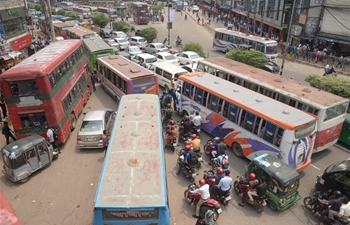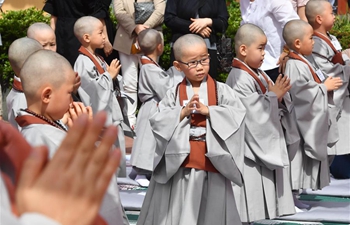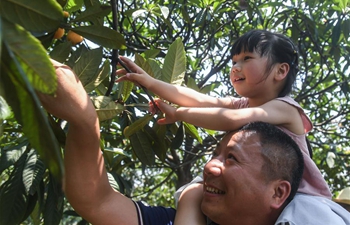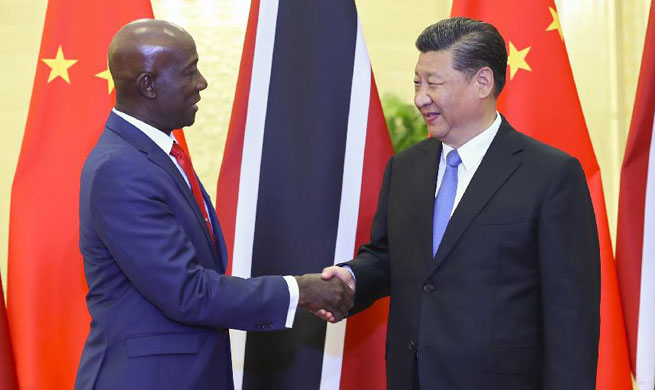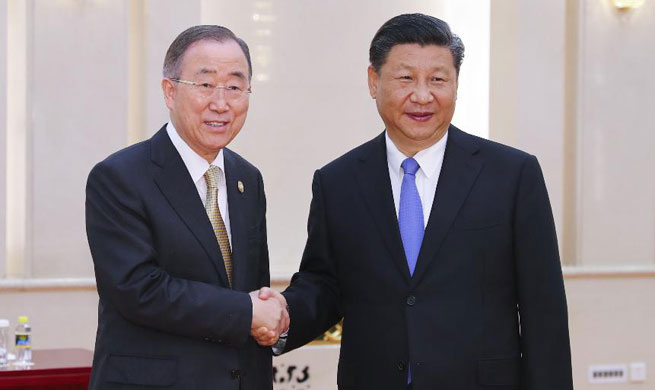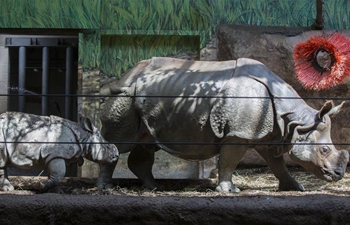UNITED NATIONS, May 15 (Xinhua) -- With children increasingly targeted in conflicts as well as having to suffer the worst impacts of hostilities, the United Nations Children's Fund (UNICEF) on Tuesday called on all parties to conflicts around the globe to ensure that they are kept safe from harm.
In the first four months of 2018 alone, hundreds of children lost their lives and many more wounded in countries ranging from the Central African Republic to South Sudan, and from Syria to Afghanistan.
"With little remorse and even less accountability, parties to conflict continue to blatantly disregard one of the most basic rules in war: the protection of children," said Henrietta H. Fore, the executive director of UNICEF in a statement.
"The rules of war prohibit the unlawful targeting of civilians, attacks on schools or hospitals, the use, recruitment and unlawful detention of children, and the denial of humanitarian assistance. When conflicts break out, these rules need to be respected and those who break them need to be held to account," she noted.
In addition to the children caught in fighting, millions more are at the risk of starvation, abduction, child recruitment, abuse and displacement. Many are also losing their lives to deadly diseases that could have been prevented.
In Yemen, for instance, almost 4.3 million children are severely food insecure. In Syria, over 5.3 million children are internally displaced or refugees outside its borders, and nearly 850,000 children continue to live in besieged or hard-to-reach areas.
The situation is equally worrying in South Sudan, where in addition to displaced and acutely malnourished children, some 19,000 children continue to be used as fighters, messengers, porters, cooks and even sex slaves by warring parties.
In the statement, Fore said that in these crises and many more, UNICEF and partners are "doing all they can" to alleviate the suffering of children and their families.
"Despite funding shortfalls, we are resolutely committed to serving the most vulnerable. We are vaccinating children, treating them for malnutrition, sending them to school, providing them with protection services, and trying to meet their basic needs," she said.
Only 16 percent of UNICEF's funding needs for 2018 has been received.




